You can trust Cyclingnews
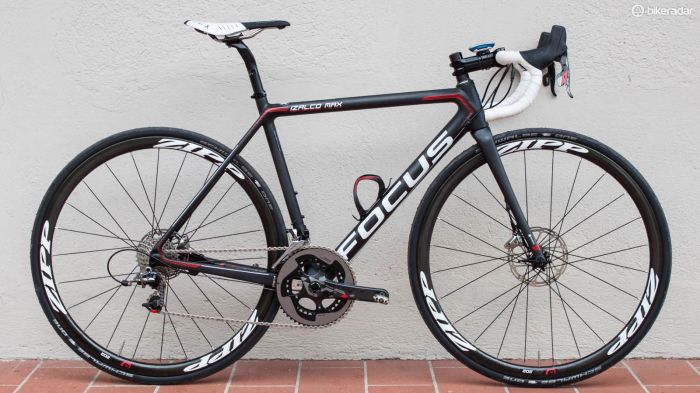
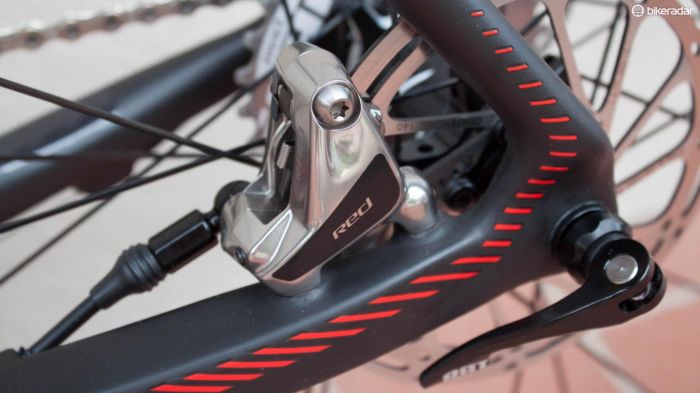
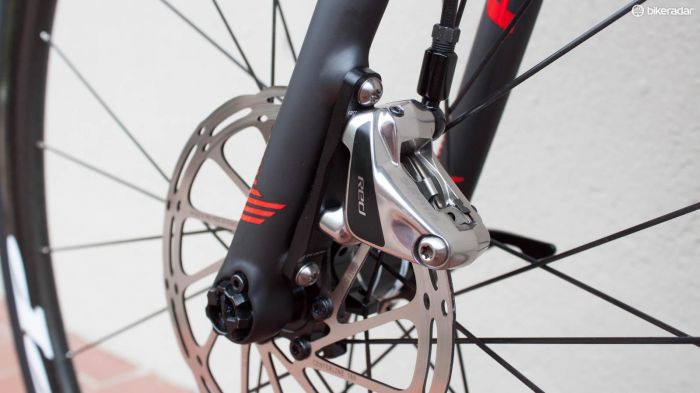
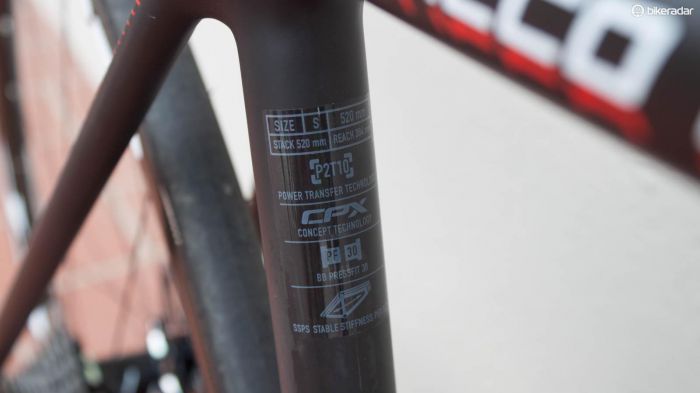
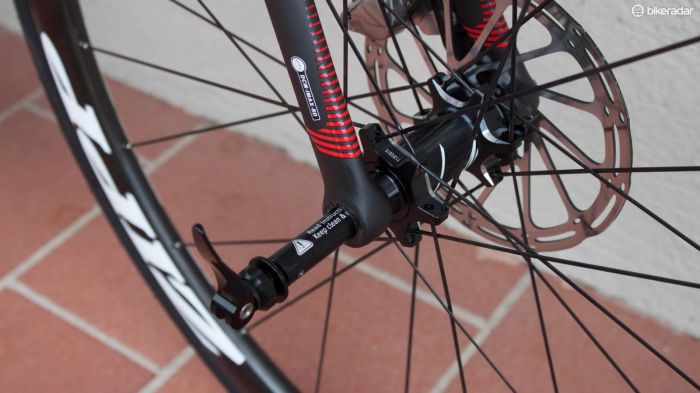
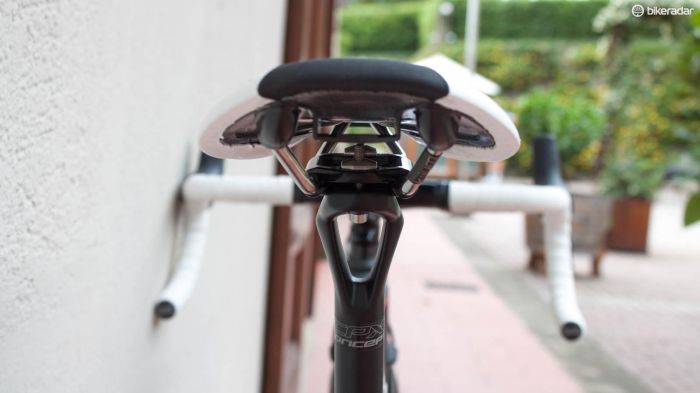
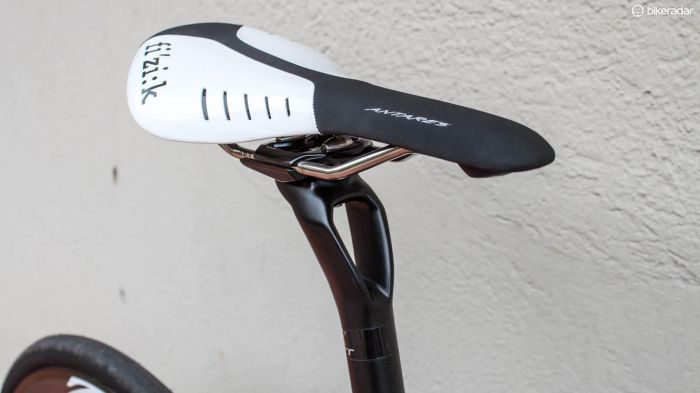
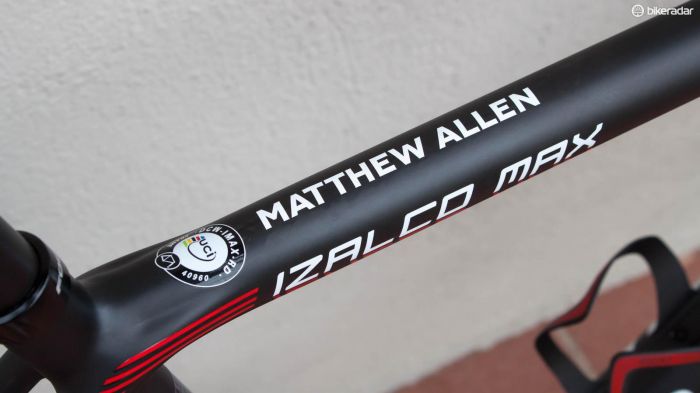
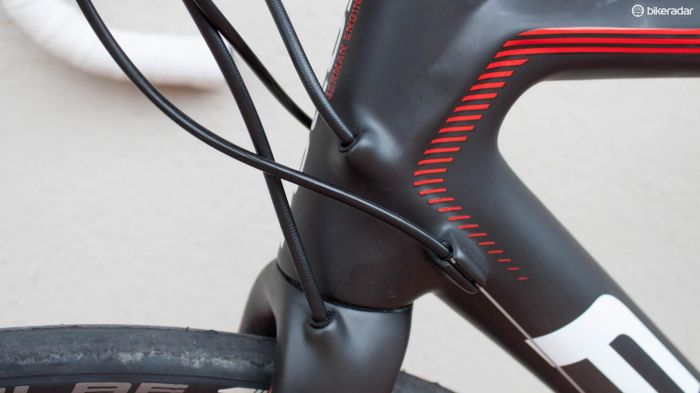
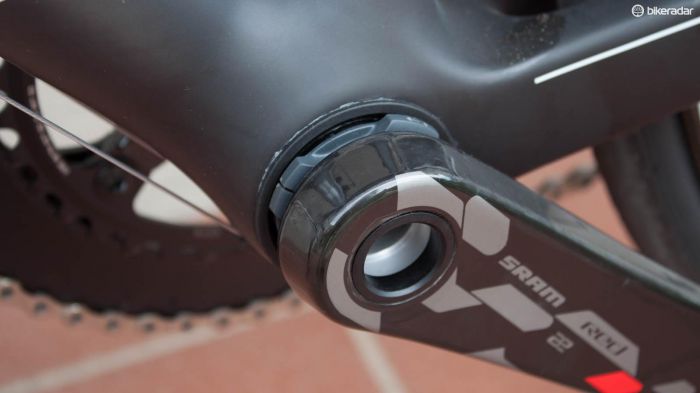
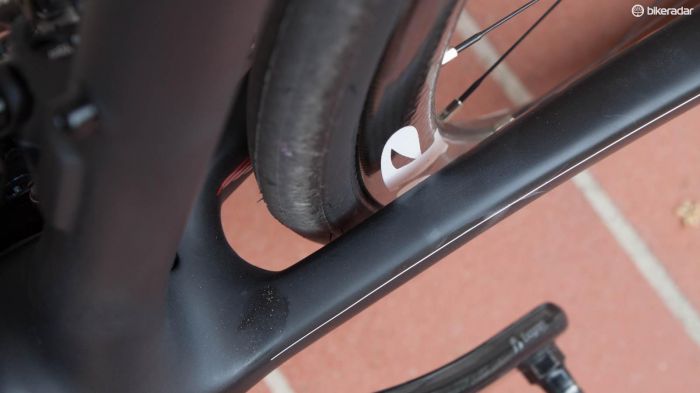
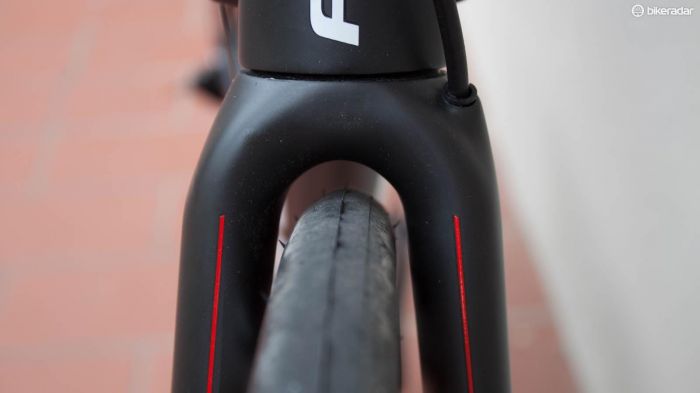
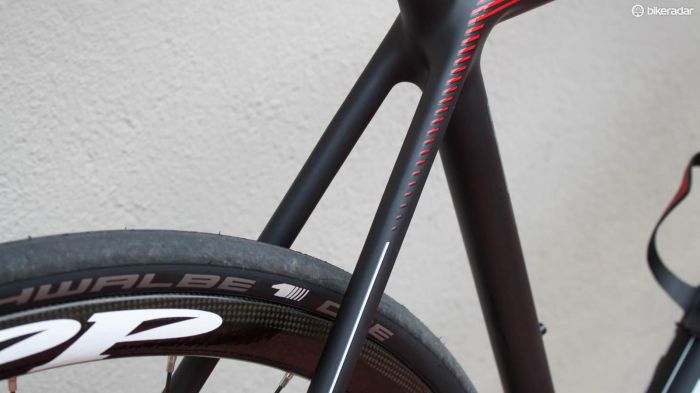
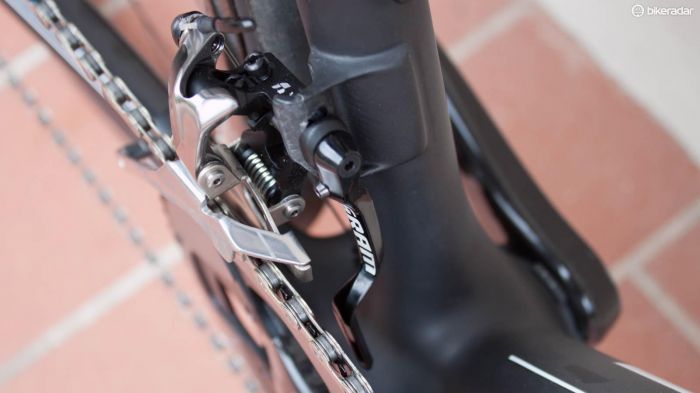
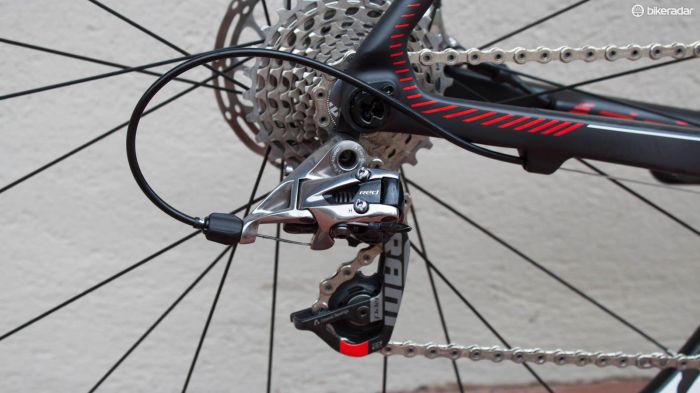
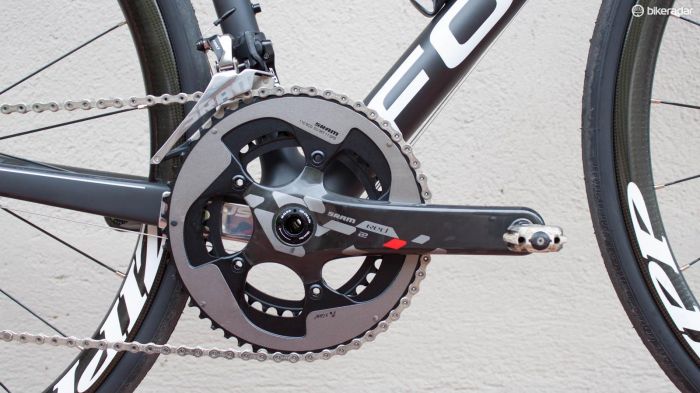
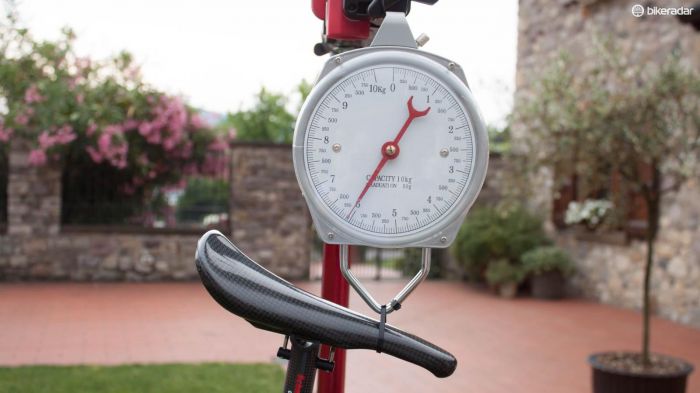
This article originally appeared on BikeRadar
With the first trials of disc brakes in road racing imminent, competition in the realm of race bikes with rotors is intensifying. German brand Focus has today announced a disc version of its flagship racer, the Izalco Max.
Claiming to be the lightest disc road bike there is at just 790g for a size 54 with all frame hardware (plus 320g for the fork with 225mm of steerer), the Izalco builds on the success of the mid-tier Cayo Disc. Notably, it’s also the first pro-level frameset to use the Flat Mount brake standard introduced by Shimano last year.
Frameset: Lighter, better and thru-axle kitted
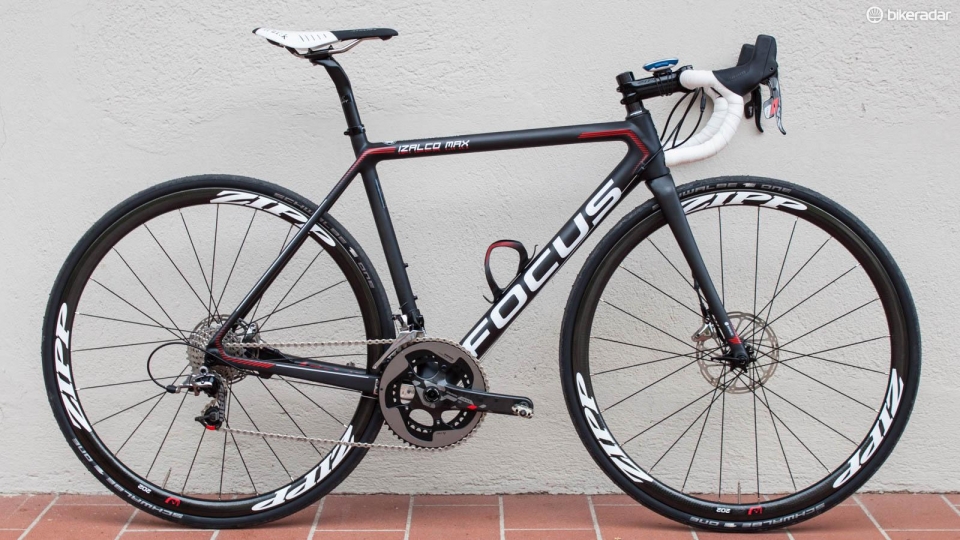
The Izalco shares a lot of DNA with its rim brake precursor including identical stack and reach figures, and the ‘Stable Stiffness Per Size’ approach that varies carbon layups across the size range to keep ride quality consistent. It’s also undergone some refinement and adaptation to reflect the requirements of a disc frameset, and to improve ride quality overall. The move to discs does away with the need for a seatstay brake bridge, so that’s gone, while extra reinforcement of the fork and chainstay were required to withstand the braking forces of disc calipers. Focus has also carried out testing to ensure that brake heat can’t compromise the integrity of the carbon around the caliper mounts.
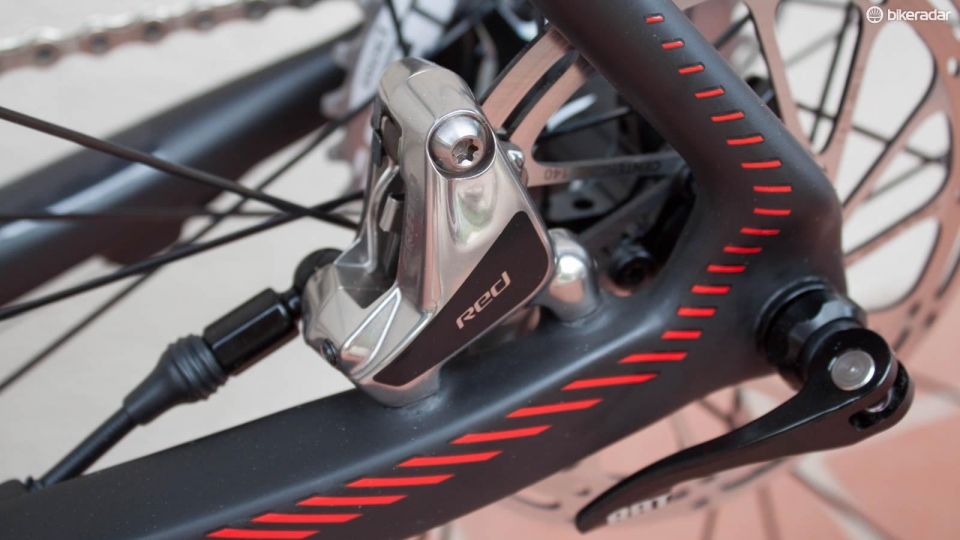
As on the standard Izalco, the gear cables run externally, which Focus says is at the request of team mechanics – we’re certainly not complaining either. It apparently has the fringe benefit of saving around 30-50g over an internal setup.
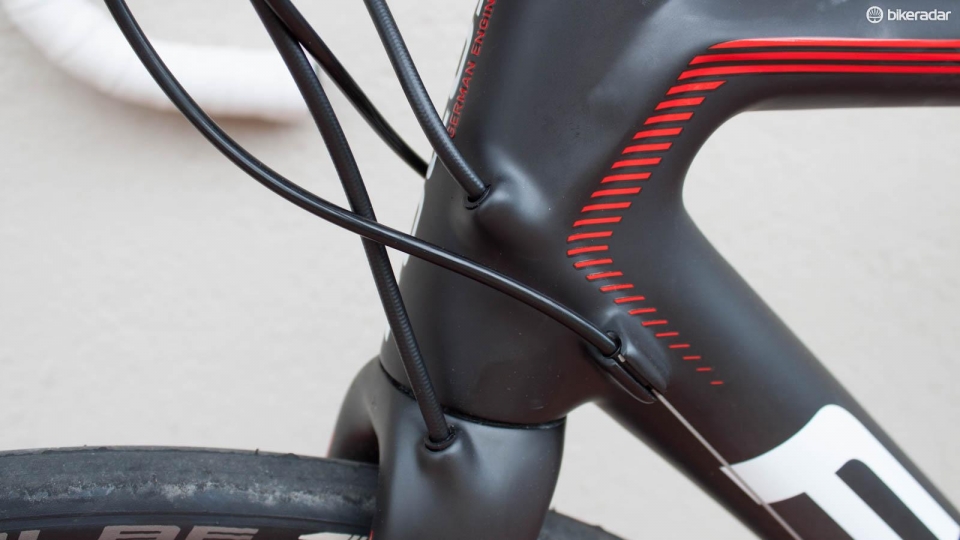
Elsewhere, subtle changes in the carbon layup smooth the flow of the seatstays into the top tube, while the obvious change – other than the discs themselves – is the switch to thru-axles, using the speedy RAT system that we’ve covered in detail before. As with previous models, this means a 100x15mm front axle and a 142x12mm rear, although Focus engineers acknowledged that we may yet see a move to 12mm all-round.
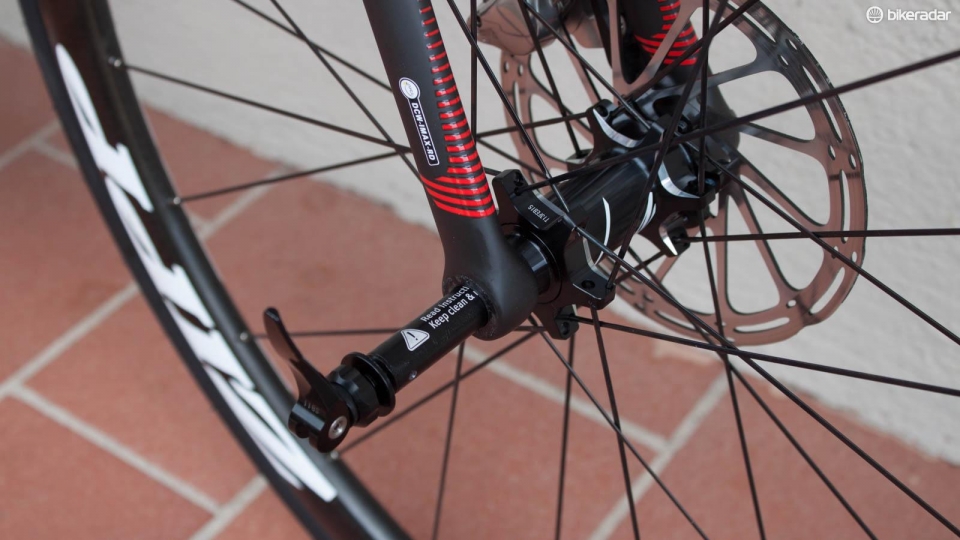
Rear disc hubs are 5mm wider than standard ones, which can cause chainline problems on race bikes with short chainstays. Rather than inventing a new wheel standard à la Specialized, Focus has simply lengthened the chainstays from 405 to 415mm, which we were assured has no negative impact on handling. It has the useful side effect of offering extra tyre clearance and like the Cayo Disc, the Izalco will take 28s without complaint. We think that might actually be a little conservative, having squeezed a set of 30mm Challenge Strada Biancas onto our Cayo Disc longterm test bike.
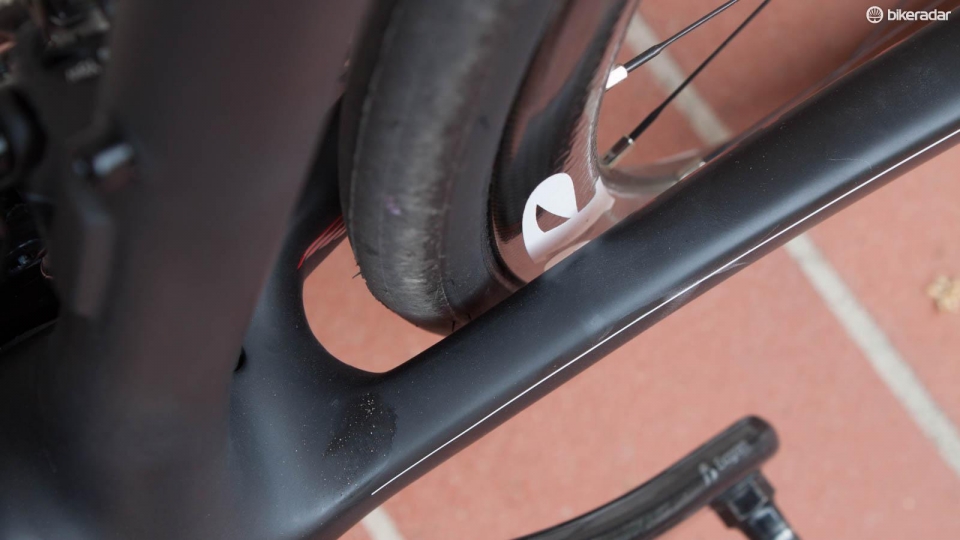
Ride quality: Hot damn it's good
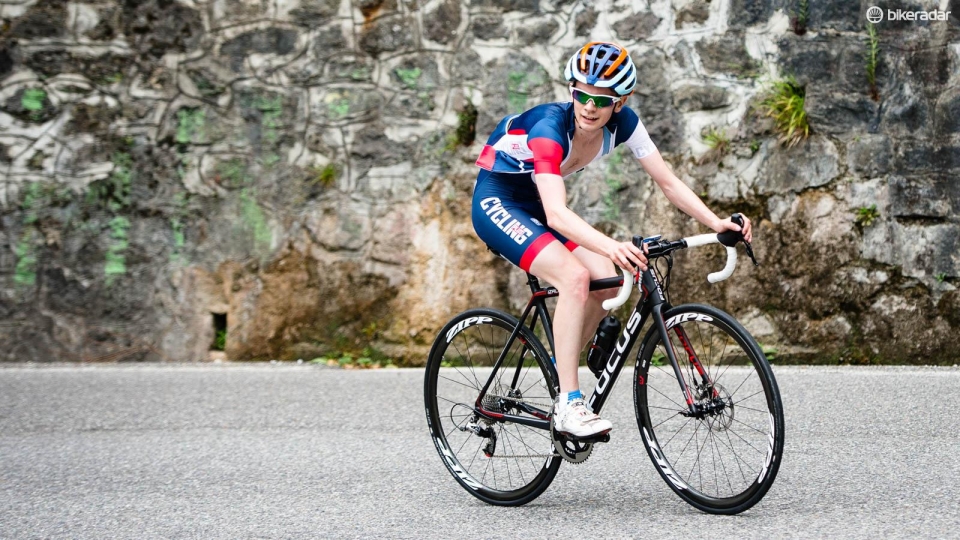
BikeRadar
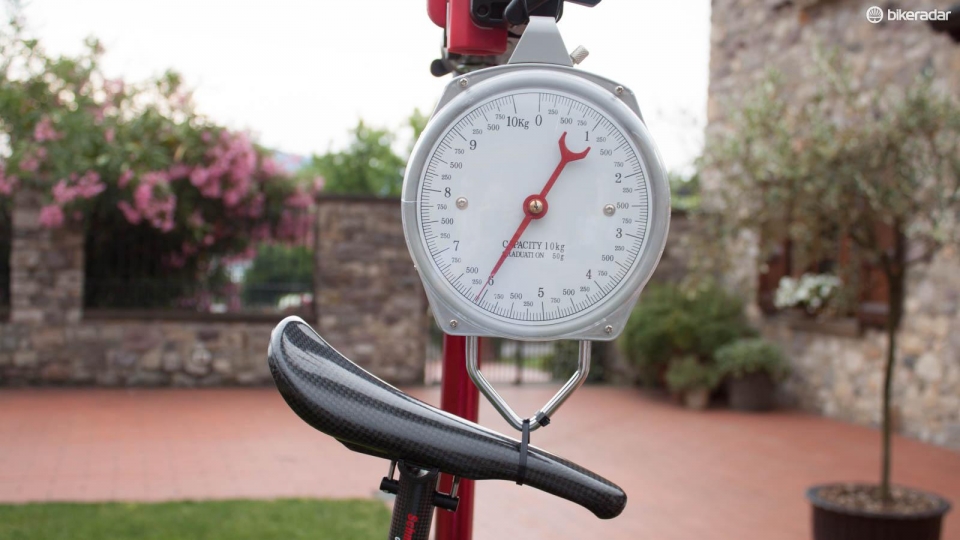
With ramrod-straight seatstays and no fancy tube profiles or pseudo-suspension black magic, I did wonder whether the Izalco would fulfil it’s brief. After all, has a new road bike ever not claimed to be stiffer, lighter and more comfortable than its predecessors?
It's always worth taking a bit of care, too, when assessing a bike’s ride qualities off the back of a product launch in a location that puts our everyday riding to shame. Sun-drenched Italian hills that tower over majestic lakes are the stuff of roadie dreams, and there’s no point pretending this can't have an influence on perceptions. All the same, the winding, relentless climbs and exciting twisty descents were a fantastic proving ground for handling, and we reckon there’s enough broken and neglected tarmac in Italy to glean some idea of how comfortable a bike is too.
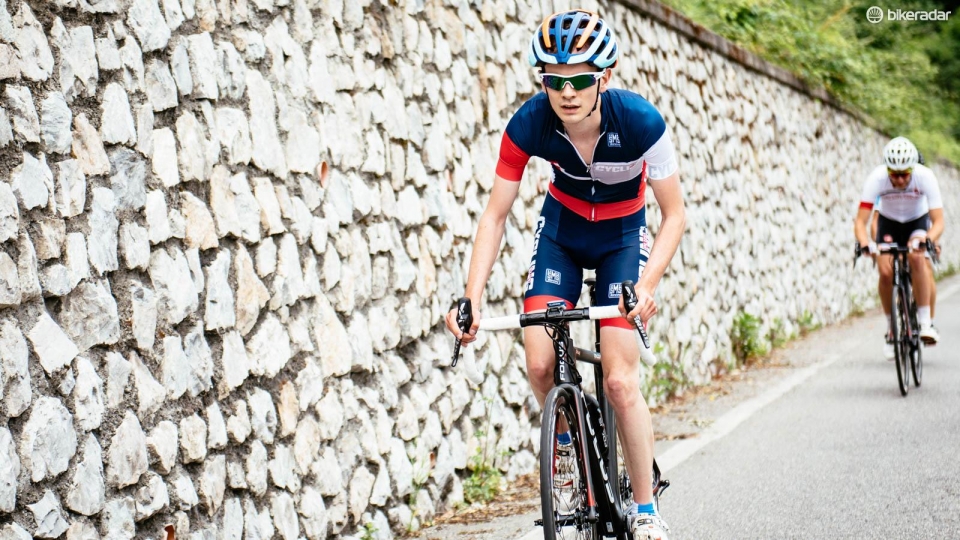
And comfortable it really is. At all speeds, the Izalco glides over crumbling road surfaces with none of the chatter and rawness you might expect of such an unapologetically racy machine. This is no doubt thanks in part to the funky looking CPX Plus Carbon seatpost, which features a slim 27.2mm shaft and a dramatic cut-out to allow for flex, but even out of the saddle road feedback through your feet and hands is muted effectively.
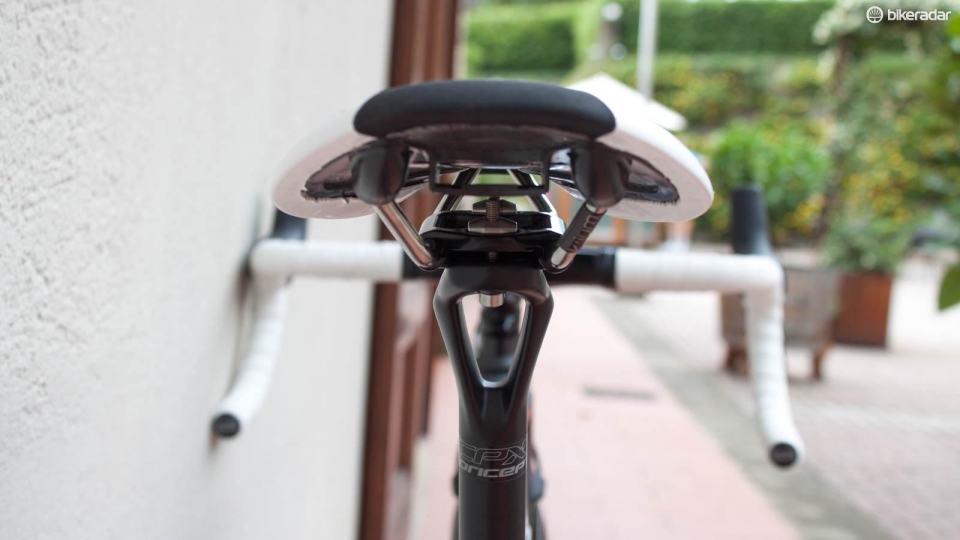
So, it’s comfortable, and yes bike review cliché lovers, it’s stiff too – who would have thought? The Izalco has that special something, where the right amount of road-feel is married to a taut, lively personality when you get out of the saddle and channel your inner steak lover. On descents, it flicks between lines with aplomb, and one particularly outstanding downhill section had me exceeding 50mph through a corkscrewing series of bends with a level of confidence you might think excessive given that this was on my first outing on the bike.
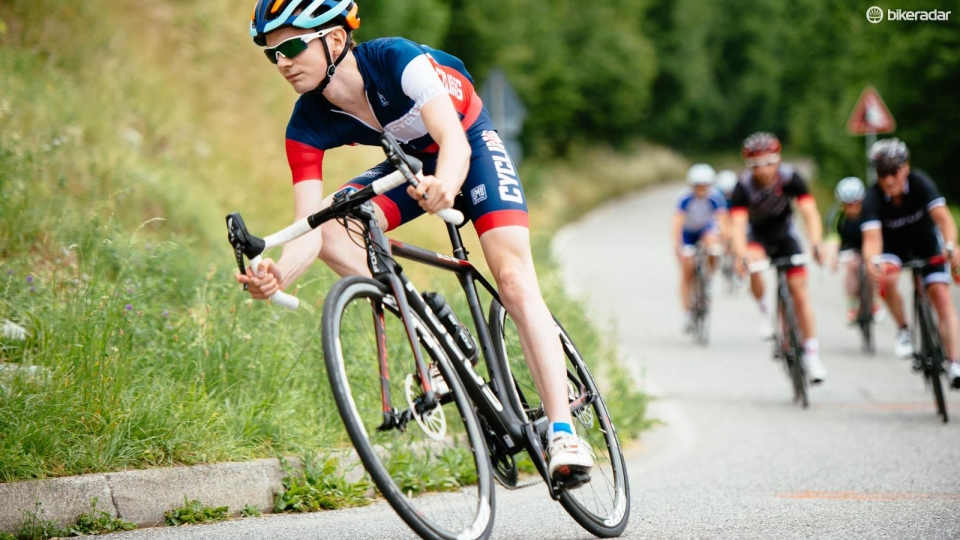
Lest I start gushing, there were a couple of minor annoyances. One – the test bike was fitted with absurdly wide bars for a small frame, but this will apparently not be the case on production models. Two, an issue that I was alone in experiencing – a tiny bit of front disc rub during out of the saddle efforts. It was sufficiently slight that we’re fairly sure it could be addressed, but it does demonstrate that there’s a least a hint of lateral flex in the fork. In all though, the Izalco Max Disc was hugely impressive. We’ll need some more time on it to pass final judgment, but it’s safe to say we like it. A lot.
The bike will be available come September 2015 in two spec versions: a SRAM Red build similar to the one tested costing €5999, and one that combines Shimano Dura-Ace derailleurs, FSA SL-K carbon cranks, the forthcoming Ultegra-level RS805 brakes, and DT Swiss aluminium clinchers for €3599. Pricing in other currencies is to be confirmed.
Spec as tested
Frame: Izalco Max P2T 10 Disc Carbon (52cm)
Fork: Izalco Max P2T 10 Disc Carbon T4
Stem: Zipp Service Course
Handlebar: Zipp Service Course
Brakes: SRAM Red 22 Flat Mount
Front derailleur: SRAM Red 22
Rear derailleur: SRAM Red 22
Shift levers: SRAM Red 22
Cassette: SRAM 11-28
Chain: SRAM Red 22
Crankset: SRAM Red 22
Wheels: Zipp 202 Firecrest
Tyres: Schwalbe One 25mm
Saddle: Fizik Antares
Seatpost: Fizik Antares
Bottle cage: BBB
Weight as tested: 6.8kg (minus pedals)